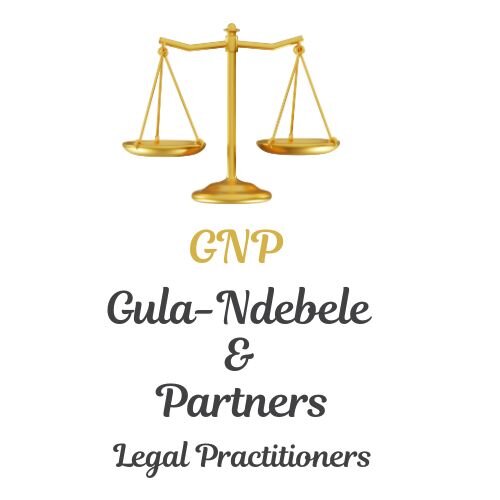Best Sanctions & Export Controls Lawyers in Bulawayo
Share your needs with us, get contacted by law firms.
Free. Takes 2 min.
List of the best lawyers in Bulawayo, Zimbabwe
About Sanctions & Export Controls Law in Bulawayo, Zimbabwe
Sanctions and export controls law in Bulawayo, Zimbabwe, refers to the set of regulations and policies that govern the movement of goods, technology, services, and funds across borders, particularly concerning restricted or controlled items and destinations. These laws are influenced by domestic legal frameworks as well as international obligations under organizations like the United Nations, African Union, and the Southern African Development Community. Zimbabwe has faced various international sanctions in the past, and compliance with local and international export controls remains a key concern for individuals and businesses in Bulawayo.
Why You May Need a Lawyer
Legal issues surrounding sanctions and export controls can be complex and have severe consequences for non-compliance. You may require legal help in situations such as:
- Starting a business that involves import or export activities
- Receiving goods or technology from abroad
- Facing allegations of violating sanctions or export controls
- Seeking to understand your compliance obligations under Zimbabwean and international law
- Dealing with asset freezes or travel bans affecting your business or personal financial interests
- Navigating transactions involving countries or entities under sanctions
- Managing legal risks if your industry is targeted by new sanctions or export regulations
- Applying for licenses or special permissions for controlled exports
A lawyer specializing in sanctions and export controls can help you interpret laws, assess risks, prepare documentation, and represent you before authorities if issues arise.
Local Laws Overview
Sanctions and export controls in Zimbabwe are primarily governed by laws such as the Exchange Control Act and the Customs and Excise Act, along with several statutory instruments. These laws regulate:
- Which goods and technologies require licenses for export or import
- Prohibited transactions with individuals, companies, or countries under sanction
- Reporting and documentation required for cross-border trade
- Financial transactions involving foreign currency and international banking restrictions
- Penalties for non-compliance, which can include fines, seizure of goods, and criminal prosecution
- Procedures for applying for exemptions or licenses
Zimbabwe is also subject to certain international sanctions regimes which may restrict trade or financial dealings with specified persons, organizations, or countries. Residents and businesses in Bulawayo must ensure their activities are compliant both with Zimbabwean law and relevant international obligations.
Frequently Asked Questions
What are sanctions and export controls?
Sanctions are restrictions imposed by governments or international bodies to prevent certain types of trade or financial transactions, often for political or security purposes. Export controls regulate what goods, technology, or information can be sent out of a country, to prevent misuse or illegal export.
Who administers sanctions and export controls in Bulawayo?
Administration is done primarily by the Reserve Bank of Zimbabwe, the Zimbabwe Revenue Authority, and the Ministry of Foreign Affairs, in coordination with other government agencies.
What goods are subject to export controls in Zimbabwe?
Typical items include military hardware, dual-use technologies, certain chemicals, minerals, and items deemed sensitive for economic or security reasons. The specific list is found in statutory instruments issued under the Customs and Excise Act.
Do I need a license to export goods from Bulawayo?
Yes, most controlled goods require an export license or permit. Failure to obtain the proper licenses can result in confiscation of goods and legal penalties.
How do international sanctions affect businesses in Bulawayo?
International sanctions may restrict your ability to trade with certain individuals or countries, or to transact with foreign banks. Non-compliance can lead to penalties, difficulty accessing international markets, and damage to your business reputation.
What penalties exist for violating sanctions or export control laws?
Penalties can include substantial fines, seizure of goods, revocation of business licenses, and even imprisonment, depending on the severity and nature of the offense.
How can I check if my business partners are subject to sanctions?
You can review public sanctions lists published by the United Nations, the European Union, and the United States, as well as those published by the Zimbabwean government. A lawyer can assist with due diligence checks.
Can I apply for an exemption or license to export a controlled good?
Yes, you can apply to the relevant authority, typically the Zimbabwe Revenue Authority or the Ministry responsible, providing necessary documentation and justification. Approval is not guaranteed and depends on the nature of the good and destination.
What steps should I take if I am notified of a sanctions investigation?
Consult a lawyer experienced in sanctions and export controls immediately. Do not attempt to handle the matter without legal advice, as you may unintentionally worsen your legal position.
Are there local differences in how these laws are applied in Bulawayo?
The legal framework is national, but enforcement and interpretation may vary depending on local authorities. Bulawayo’s status as a major trade center means heightened scrutiny, especially for businesses involved in cross-border trade.
Additional Resources
If you require further information or support, the following organizations and resources can be helpful:
- Zimbabwe Revenue Authority (ZIMRA) Trading and Customs offices in Bulawayo
- Reserve Bank of Zimbabwe Exchange Control Department
- Ministry of Industry and Commerce export control unit
- Ministry of Foreign Affairs and International Trade for guidance on international sanctions
- Law Society of Zimbabwe for lawyer referrals
- United Nations Sanctions Monitoring Team (for general information on UN sanctions)
It may also be useful to review statutory instruments relating to export controls and the Exchange Control Act for the latest updates.
Next Steps
If you need legal assistance regarding sanctions and export controls in Bulawayo, Zimbabwe, follow these steps:
- Identify and clearly define your issue, such as a specific transaction or sanction concern
- Collect related documents, including export permits, correspondence, and any notice received from authorities
- Contact a lawyer with experience in trade, export controls, and sanctions law
- Be candid and open with your legal advisor to facilitate accurate assessment and advice
- Follow your lawyer’s guidance in dealing with authorities or in preparing applications for licenses or exemptions
- Stay informed about changes in both national and international laws that could affect your business or activities
Early engagement with a qualified lawyer can help you avoid costly mistakes and ensure your legal rights and interests are protected.
Lawzana helps you find the best lawyers and law firms in Bulawayo through a curated and pre-screened list of qualified legal professionals. Our platform offers rankings and detailed profiles of attorneys and law firms, allowing you to compare based on practice areas, including Sanctions & Export Controls, experience, and client feedback.
Each profile includes a description of the firm's areas of practice, client reviews, team members and partners, year of establishment, spoken languages, office locations, contact information, social media presence, and any published articles or resources. Most firms on our platform speak English and are experienced in both local and international legal matters.
Get a quote from top-rated law firms in Bulawayo, Zimbabwe — quickly, securely, and without unnecessary hassle.
Disclaimer:
The information provided on this page is for general informational purposes only and does not constitute legal advice. While we strive to ensure the accuracy and relevance of the content, legal information may change over time, and interpretations of the law can vary. You should always consult with a qualified legal professional for advice specific to your situation.
We disclaim all liability for actions taken or not taken based on the content of this page. If you believe any information is incorrect or outdated, please contact us, and we will review and update it where appropriate.












